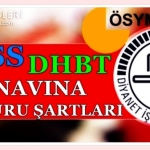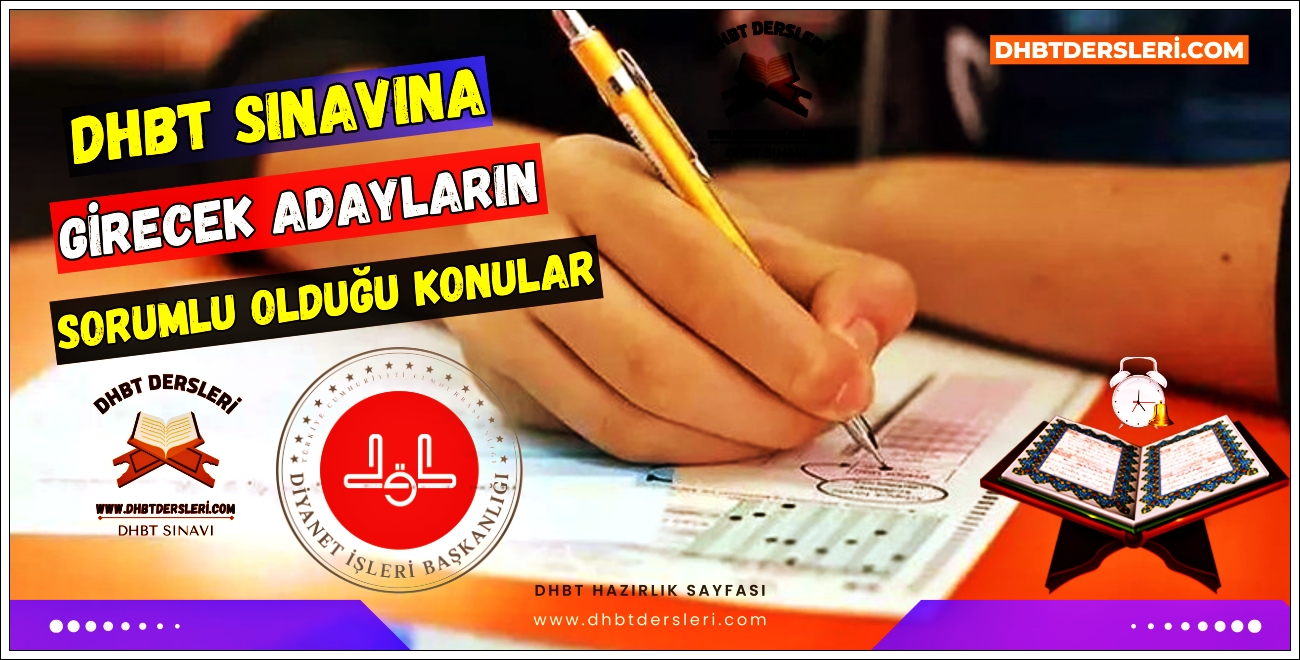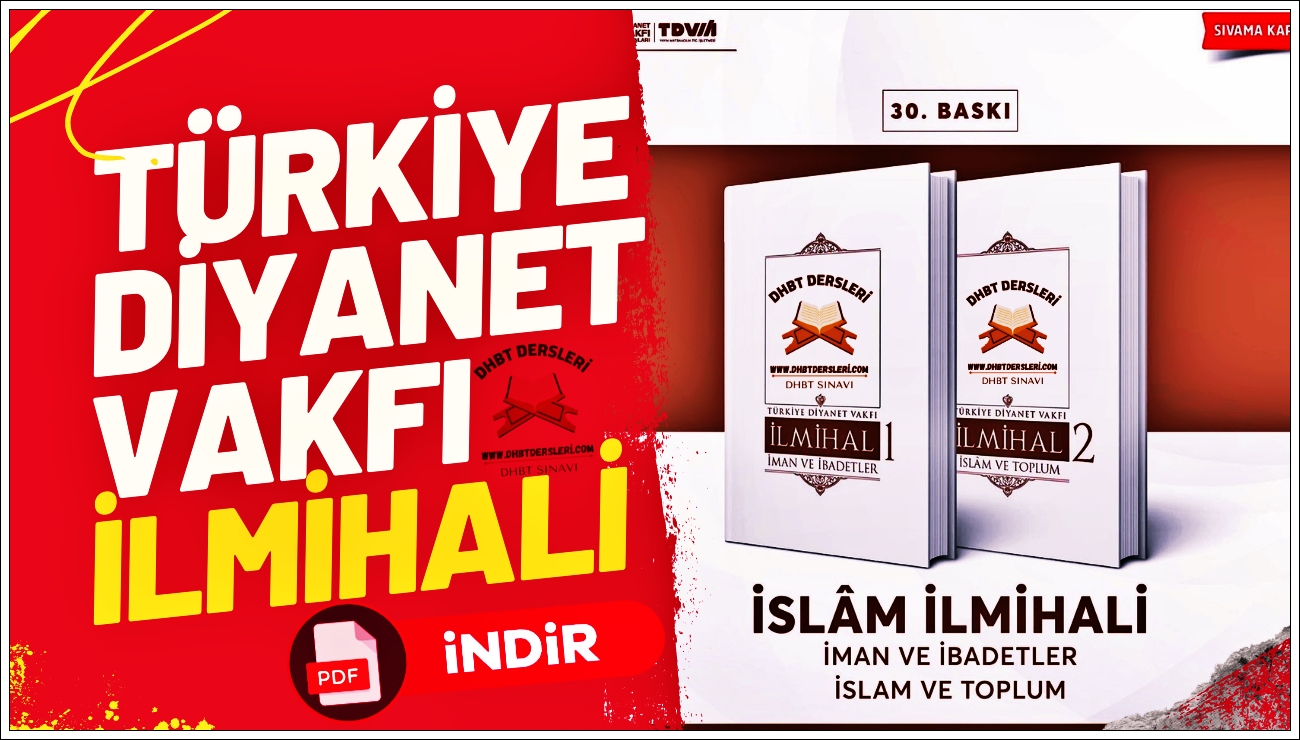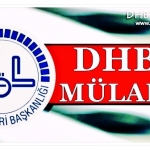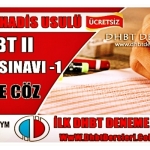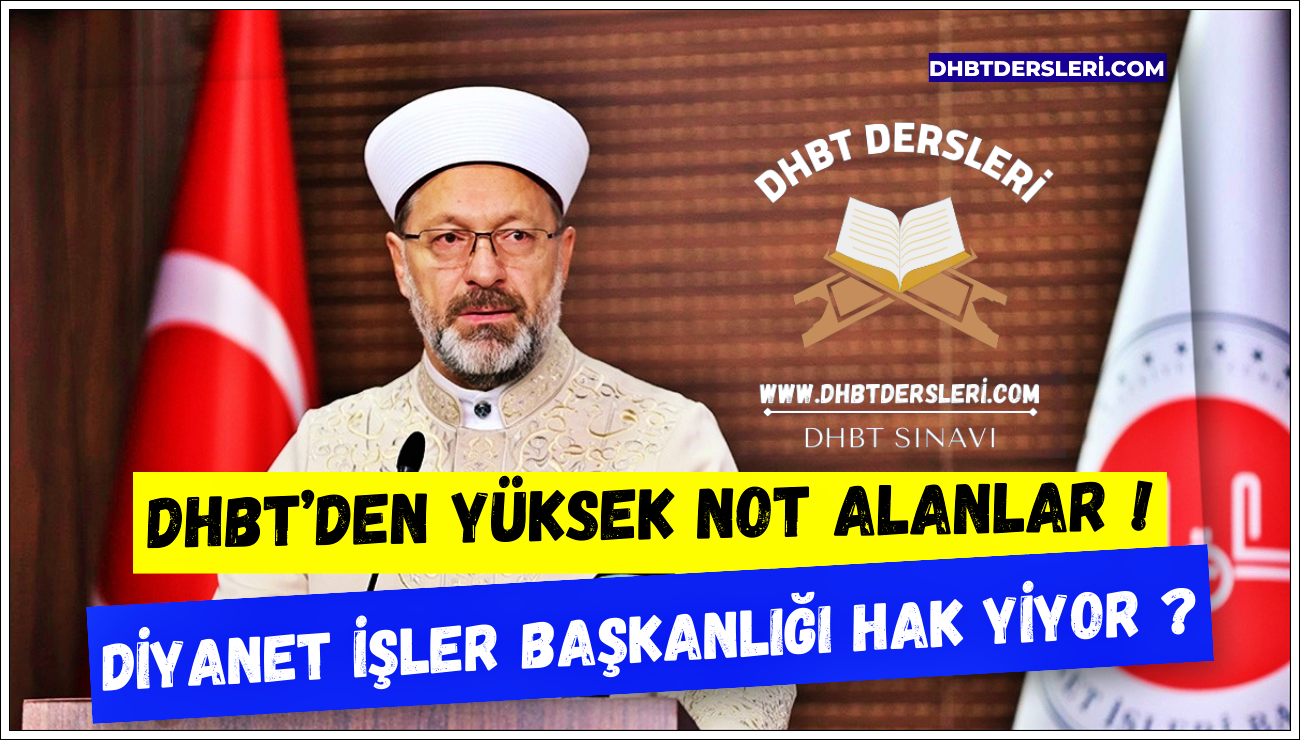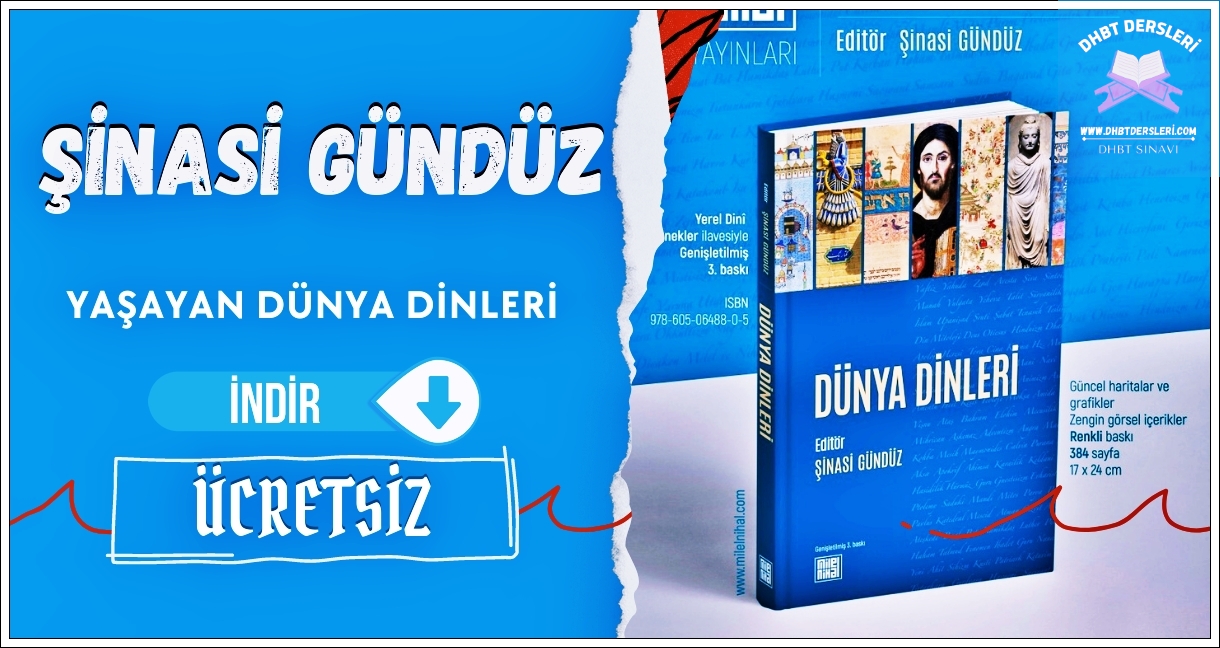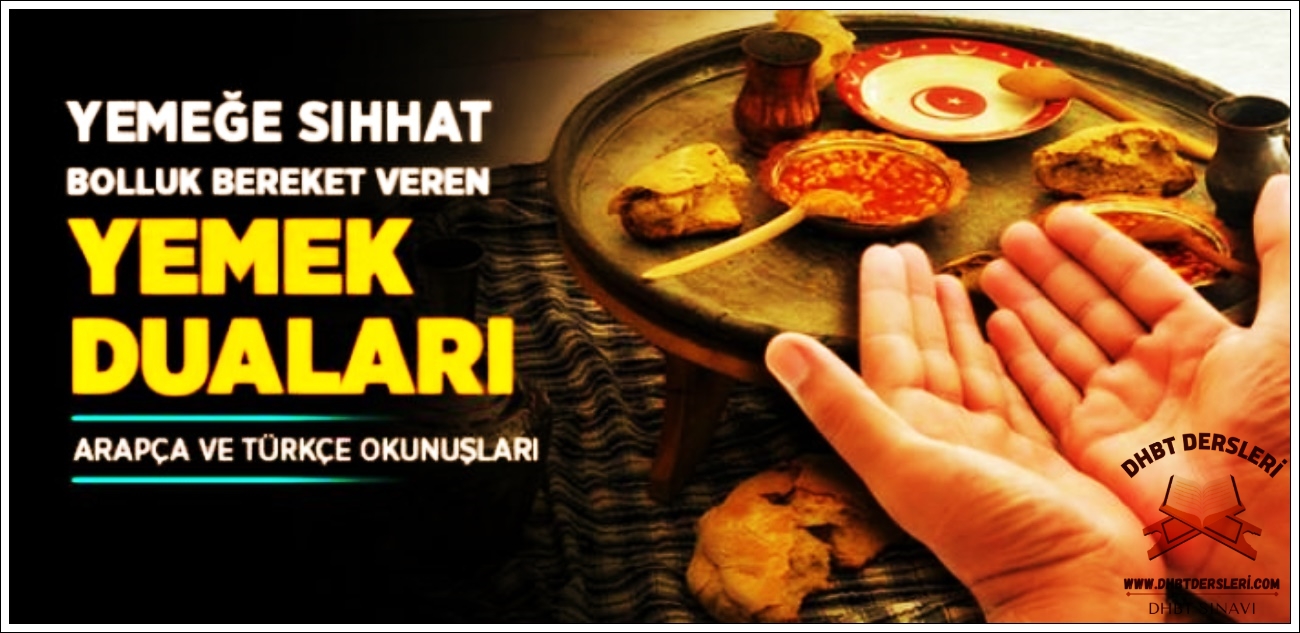Second Stage: Dedicating Freely – SECTION TWO – III
Why the “wife of Imran”? “When the wife of Imran prayed: ‘O my Sustainer! Behold, unto Thee do I vow [the child] that is in, my womb, to be devoted to Thy service. Accept it, then, from me: verily, Thou alone art all-hearing, all-knowing!’ ”This verse is reported in the words of the wife of Imran, Anna. As part of the Quran’s general style, it does not go into details of this subject. It suffi ces by stating “the wife of Imran.”
What is the name of this woman?
It does not give this information. It did not give details just like it did not state where and when this event took place …
Why doesn’t it?
It is for an obvious reason: This is God’s style. His style is clear to the core. It stays away from unnecessary details that may distract readers’ att ention. Perhaps that is to prevent people from reading the Quran like a history book. Of course, the Quran contains much history. This is true. However, it is not a history book. Many times it tells the event, but does not state the location, time, or names. Whenever it does state specifi cs, it uses titles like pharaoh, which are not personal names. In fact, these individuals have personal names like Ramses, etc. …
Why does the Quran do so?
Indeed, it does so in order not to limit its overall message to a certain time, place, or individuals. In other words, it does so to prevent people from narrowing it down to the corners of history. Names like pharaoh are generic names. They are what shah is for Persians, malik for Arabs, khan and hakhan for Turks, and what king and president are for western cultures. Likewise, Nimrod is a character type, rather than a personal name. The Quran generalizes these typologies by not giving their personal names.
Through use of this style, people should be able to easily recognize the type of individuals around them by seeing their resemblance to these examples in their morals, behavior, and beliefs. Overall, it is known that every era, society, and region could have its own type of Nimrod? Of course, it is also known that there will be a Moses or an Abraham fi gure to resist them. For this reason, both the positive and negative examples that Quran draws upon are universal types. You cannot fi nd the names of positive fi gures from Islamic history like Abu Bakr, Ali, Omar, Uthman, Aisha, Khadijah (may God be pleased with all of them) in the Quran.
Just as you are not able to fi nd the names of negative fi gures – Abu Jahal, Umayyah or Abdullah bin Ubayy. Amongst friends of Muhammad only Zayd and amongst the disbelievers only the name of Abu Lahab are stated. They are exceptional and there are reasons for them to be mentioned in the Quran. The Quran uses this style in order not to distract peoples’ att ention. The important thing is not who did what, but rather what was done. If it is a good thing, then it is for everyone. The Quran is a book that is believed, understood, and practiced. It is not meant to be a subject of academic research to write dissertations or to make academic career out of.
For that reason, the Quran has this style. That is why the fi rst generation of Muslims understood the term scholar, or “alim,” as the one who reads Quran to understand, live by, and keep it alive. The Quran says “wife of Imran” and does not give the name. If you want to have details on the subject, then you’ll have to check the history or research the available resources.
When we do that, we learn from historical resources that the name of the woman is “Anna.” Now, this piece of information has marginal signifi cance for us. However, the fact that the accuracy of this event is supported by other resources forces the disbelievers who look at the Quran with doubt to accept it as a historical event. On the other hand, argument alone does not explain the wisdom in Quran’s calling her “wife of Imran.” We believe that the Quran is drawing att ention to two points by using that title.
1. The fact that the performer of the action is a woman. She personally made the vow a reality; there is wisdom in this fact for the ones who think. A mother has a special bond with her child beyond even what a father can have. Here we have a woman, a mother, who sacrifi ces her own soul – her only beloved child. God is also reminding people of the opportunities there are for the females who desire to be close to God, who want to please their Lord, and dedicate something for His sake. She is at no disadvantage compared to men in the ability to please God – she actually has a unique extra opportunity due to this special position and bond with her child.
2. The modifi er “Imran” in the phrase “the woman of Imran” is also an essential part and a prominent character in the actual event. While bringing out the fact that the one performing the action is a woman, the mention of her husband reminds us of the central importance of family working together. Family is the cornerstone of society. This family model of righteous parents together with the correct goals and actions helps to bring forth an exemplary child. “The wife of Imran” made her devotional act a reality that brought her name to be writt en in the book of immortals by saying this: “O my Sustainer!
Behold, unto Thee do I vow [the child] that is in, my womb, to be devoted to Thy service.” Anna was for sure aware that she was giving the most valuable thing she could have in her entire life. Anna’s experience of having a child was diff erent from the norm. After living a long life without a child, just at the end of her life, a child was given to her as a gift by the Lord because of a prayer. For this reason, the value and meaning of Anna’s child in her sight was very diff erent. However, she knew that being thankful to God, who had accepted her prayer and granted her wish despite her age, was among the conditions for maintaining or even increasing the amount of her blessings.
An off ering that is accepted should be returned by some measure of gratitude to the giver in turn. Gratefulness to grace and thankfulness for blessings was needed. How should she thank her Lord so that it would be a proper response to this outstanding blessing? She knew that God does not need anything. God does not get hungry or thirsty and does not go through any hardship. However, she also knew serving the religion, the house of worship, the book of God – in short serving anything God loves – is serving God himself. By upholding divine values, faithful believers are actually helping themselves.
“O you who have att ained to faith! If you help [the cause of] God, He will help you, and will make fi rm your steps.” (Chapter 47, verse 7) Anna: Monument of Self-sacrifi ce Anna was convinced that she had to off er a sacrifi ce to that authority, this is for sure. For us to understand how great this sacrifi ce was, we do need to analyze the situation that she had to undergo. We must examine two possibilities concerning Anna:
1. Was she someone who had riches?
2. Was she someone who had nothing?
If the first state is the reality, then the wife of Imran chose the most valuable item she had to off er to her Lord, of all the things she could have given. If she hoped to gain the pleasure of her Lord this way rather than by the vehicle of other things, then this is the highest of the sacrifi ces. In this case, she knew that only things that are valuable would be off ered to the most worthy recipient. She also knew that the degree of sacrifi ce is a reliable measure of love and submission.
Thus, she must prove her love to her beloved Lord in an adequate way. She knew as well that the best of thanks is not only done through the tongue, but is also done by deeds and living. She also knew that when thankfulness is not given for blessings, it could turn into countless troubles for the recipient of those blessings. The second of the two possibilities explores the situation if she was poor; and if so, she would be devoting her only valuable “possession.” Such a sacrifi ce is at least as great as in the first possibility. This was an outstanding expression of love and submission. She could never conceive a child by normal means.
She had long ago passed her child-bearing years. Despite this fact, she believed in Lord’s highest power and wished for a child. Therefore, God granted her wish and gave her an exceptional child as a bonus. Thus, she received special treatment, far out of the ordinary. This magnifi cent blessing required a diff erent type of thankfulness. Anna’s gratitude was exactly that. She devoted without a moment of hesitation. She consecrated even though she did not have anything. She acted wisely. Is it not a fact that God is the real owner of everything? “Verily, unto God do we belong and, verily, unto Him we shall return.” (Chapter 2, verse 157) “For, God’s is the dominion over the heavens and the earth; and on the Day when the Last Hour dawns – on that Day will be lost all who [in their lifetime] tried to reduce to nothing [whatever they could not understand].” (Chapter 55, verse 27)
The life of this world comes with accessories like children, property, and everything else… All of these were “(but) a brief enjoyment” (chapter 3, verse 97), “and know that your worldly goods and your children are but a trial and temptation” (chapter 8, verse 28).
The Owner of all ordered: “O ye who believe! save yourselves and your families from a Fire” (chapter 66, verse 6).
Anna too saved her own soul and her child’s by devoting her to the Lord. She acted wisely by giving the trust back unto her Owner’s trust. Yes, she was mindful as she gave the Owner what she “possessed.” She also acted wisely by giving her child to the best teacher.
It was wisdom of the highest level that she handed over her child to the best caretaker – no other power could have protected her child bett er. She acted wisely by choosing the most assured strategy for saving her own soul and her family’s. The verses state that she made her off ering and her off ering was accepted. However, two points are made here to show the secrets of acceptance:
1. off ering the devotion freely
2. off ering the devotion with upmost humility and modesty “Freely”
The word “muharraran” which we translate “as a free person,” stays as the key word in front of us for the acceptance of the devotion. Let us briefl y look at what the earlier scholars said on this term “muharraran.” Ibn Abbas says “it means solely and only in the service of the Temple I gave.” Mujahed says that it means “only and for the service of God, sincerely and seeking no worldly considerations.” Sha’bi says “it means giving up for the sake of worship and sacrifi ce.” Suddi says “it means without working for this world.” Rabi says “to guarantee the acceptance of her dedication.” Begavi explains it as “Muharrar is being free from any conditions.” Qurtubi considers it an object of the sentence “it means ‘I dedicate a child who is totally free.” Ibn-I Arabi comes to the strange conclusion that Anna might not be a free person but a concubine.
Ikrime interprets thusly: “I dedicated to your sake free from of all worries and considerations of this world.” Most of these commentaries are not much diff erent than each other. They complement each other, and their core is this: The wife of Imran dedicates her beloved only child free of all kinds of conditions, with a sincere intention, not expecting any worldly gain for it, for nothing else but God.
While dedicating, she is not negotiating. Leave the bargaining aside, she knows there is no guaranty of the acceptance of her devotion while she says humbly, “May you accept this from me”. As ibn-I Arabi calls her dedication the highest of devotions.
Isn’t that the case? You are devoting the most valuable of all beings, your most valuable asset when you needed it most, with the purest intention and the most mature manner. You will devote to Him only. You will devote without expecting anything in return. You will not negotiate. You will plead, “Accept this from me.” After you devote, you will not look back. You will just seek refuge from the rejected Satan and off er yourself to God and submit plainly without any ceremony. Here is the best example of devotion of all times – the peak that devotion can reach.
For Anna to fulfi ll such devotion, especially under the circumstances of her contemporary time, she had to be totally free to accomplish her goal. Physical freedom is only a part of the meaning. The essential freedom is not the freedom of flesh and bone, but rather the freedom of feelings and thoughts, faith and spirit. There are so many people who assume that they are free according to modern standards.
Their entire lives pass in servitude while they are not even aware of being captured and blind. The most common and worst type of slavery is this kind. For sure the most real and valuable of the freedom is the kind we are mentioning here. For her to be able to dedicate from her own soul, especially under these circumstances, doesn’t it require such a complete freedom?
To give, one has to own; and to devote, one has to be free. If you do not own something, how can you give it? Furthermore, if you are not the owner of what you need to give, then how is it possible to give? If you have submitt ed yourself to what you need to devote, then how can you submit it to something else?
If people can’t bring themselves to give something, that means they are not the owner of it. On the contrary, those things became owners of people. If people are not devoting, it is because they dedicated their lives for the sake of those objects or mortals instead of God’s sake. I leave it up to you to think of the deep diff erence between Anna and those who devote their entire beings, their energy, and all their accumulations to their children, family, or their own selves under the lie of “planning the future,” to eat well, dress well, live bett er – in short, devoting their lives to entertainment and enjoyment, which are all inferior dedications. The wife of Imran was a human too. She had ambitions and desires that made her a target for Satan. However, Anna had been released from the captivities and bondage of life, making her free to break multiple chains at once in order to fulfi ll such a great devotion.
Breaking the Chains
Let us think of the nature of those chains she had to break free from and the bonds she had to separate from as well. It is possible to gather these under two categories: internal pressure and external pressure.
1. Freedom from internal pressure: There are so many obstacles in front of humanity to overcome in pleasing The Lord. When we classify them, two types of obstacles lie before us: One of them is internal obstacles which come from the human structure and there is no doubt that Satan and desires come out of this.
Satan, the archenemy of mankind, has many methods to seduce a person. His words are mentioned in the Quran: “I shall most certainly lie in ambush for them all along thy straight way.” (Chapter 7, verse 16) He tries to turn people from the right path, and if he is not successful in that, to trip them along their way, or at least to slow them down to make them stop and sit on the road.
Indeed the wife of Imran came across Satan when she was trying to walk on God’s straight path. Satan worked hard to nullify her great actions. For example, Satan may have said to her coming from the front side: “You are a woman alone. Your husband is old. He might die soon. What are you going to do in your old age all alone? Come on, give up on this.” On the other hand, he could have come from the back and said: “If you are left homeless and hungry, who is going to take care of you? You are risking both your future and your child’s future.” Satan also may try to come from her right side, saying, “First let your child be born, grow up and become an adult.
Let him or her go to college, get a degree and fame with a career. The child might become a director, minister, or even a president. Then he or she would serve God bett er, right? Think about this – the bett er carrier the bett er the service.” Coming from the left side, “Couldn’t you fi nd anything else to give instead of your child?
There are so many scholars and knowledgeable people around you. Do you think you know bett er than them? None of them devoted their children to God like you do. This scholar has three children, that priest has fi ve children and such and such wise man has seven children; however, you have only one. After all, does God need your devotion? Are you the one who is going to fix what the whole world is missing?”
He might even try coming from the above and say: “You are already fi rm, pure hearted, faithful, and righteously pious. If you are not going to enter heaven, then who will? God knows also that you are alone, you will need your child to help you in the future. You might end up sick or in poverty. You never know if you might fall into a situation like that.” Alternatively, he could say coming from the bott om: “Be reasonable – use your intellect. Give God what is due to God and give Caesar what is due to Caesar. Follow a middle path, and be a moderate person who acts with deliberation. Extremism is not good in anything – my recommendation is for you to not do this.” Satan, his devils and their allies did whisper to her just like they did to so many other righteous people.
Anna frees herself from these chains by the help of her wisdom and sharp perception originating from her faith. She called out to her Lord and protected herself from the devil’s lasso thrown on her emotions and thoughts. She closed her ears to these suggestions from inside and out.
2. Freedom from external pressure: The other type of pressure for any individual is the external pressure. This type has so many aspects; however, the most common are society, culture, and tradition – basically, a person’s surroundings. Anna was living in a Jewish society that had strayed from its original teachings and become selfi sh and profi t-centered. This community was infamous in att empting negotiations with God over obligatory duties, and turning religion and its holy belongings into marketable materials. In such a society, Anna’s act indeed would draw so much att ention and reaction as well.
There were two dimensions to this communal reaction under discussion now: religion and social-cultural. In the religious tradition, there were conditions for a person to be dedicated into God’s house. According to those rules, the child to be consecrated had to be a boy. Girls could not be consecrated. Anna had to face reality in this term before her child was born; her husband scolded and rebuked her. Furthermore, according to some narrations, Imran’s death was caused by worries by the possibility of communal condemnation in case of a female child was born promised for devotion.
However, Anna was ready to undergo these possible heavy reactions and boldly opposed her critics until the end of her life. Thus, Anna broke the first chain of the surrounding pressure which is the religious traditional chain right at the beginning and became free. The second big ring of the chain of surroundings is social culture. This event took place in Palestine at the time when the Romans were ruling. Naturally, within societies where patriarchal Roman culture dominated, women were often treated in a degrading manner.
She had no social or personal security. This was the case with the society and the religion of the time as well. Even within their concept of the relationship between man and Lord, there was this discrimination. They constructed a religious perception in which man received better treatment than woman even in the afterlife just because of his gender. God planned a divine scenario that would destroy such gender discrimination and break the masculine idol; for this, God chose two heroic women (Anna and Mary) to fulfi ll His plan for the world to see.
After suff ering an unthinkable defeat at the hands of Anna and her off spring, the social culture would experience a bigger one to come. That was a son bestowed unto Mary without a father, to a woman who was devoted by a woman. One of the many wisdoms of this great miracle is the divine rejection of the pagan Roman culture that constructed man’s image as idols to be worshipped. They degraded women and unfortunately they are the ancestors of contemporary western civilization. Anna fulfi lled her dedication to her Lord as an entirely free person by breaking all these aforementioned internal and external chains.
Anna was well aware that full submission to God is the true freedom. To teach the true nature of freedom for future generations, she freed herself first by rejecting those who were selfi sh, evil, and individualistic, and submitt ed her will to God’s Will; then she gave her child to her Lord, trusting His ability to protect and teach the child wisdom so that she would be forever free.
Third Stage: Devoting Modestly
The work was not over by giving a part of her soul. Another feature the wife of Imran taught us is the manners and process of doing a good deed for it to be acceptable. Otherwise,a deed may not achieve its full value in obtaining the pleasure of God. In this devotional process, Anna had faith and a goal: the pleasure of God. Then she fulfi lled a good deed with sincere intention: Devotion.
What remained was the correct att itude in order for this deed not to be wasted. Through her att ributes and wordings, she portrayed her awareness of the one to whom she was making her dedication. Her sacrifi ce was tremendous, to describe it in a word. She could have felt pride and perhaps bragged about it; however, she did not do so. She did not swagger or show off .
She acted to the contrary; she did as the friends of God, trustworthy ones, martyrs, and devout ones did … both gave and implored, both devoted and put her face on the threshold of submission and said: “My Lord, accept it, then, from me.” No signs of arrogance here. On the contrary, there is anticipation with excitement and worry about whether the devotion will be accepted. “What if God does not accept it?” Surely, He does not have to? What if she had made some mistake or something was wrong in this process? She does not act indiff erently, saying, “I have done my dedication; the rest is up to Him, whether He accepts it or not.” On the contrary, she is deeply modest and submissive: “Accept from me! … Thou alone art all hearing, and allknowing!” Yes, He was so, all-hearing and all-knowing, hearing Anna’s request coming from the bott om of her heart, and was aware of all the concerns in regards to her devotion, which she kept deep in her heart. The only thing the wife of Imran had comfort with was that He was all-hearing and all-knowing.
For this reason, she turned her face, soul, and speech to her Lord, as if she was speaking to Him directly, and poured out all her troubles to her Lord. “Lord, what I have in my womb … Thou alone art all-hearing, and all knowing!” Maybe Anna was saying these in a voice she couldn’t even hear herself. And there was no need to broadcast it. There were some things she wanted to say, but her tongue would not utt er them. If she said them, would it be disrespectful to the Lord? What if that would be a misstep that would undo her good deeds, or cause ill feelings in her heart? The best was not to pronounce them. After all, He heard and He knew, and this was more than enough for Anna.
There wasn’t any intermediary between Anna and her Lord while these were happening. She wasn’t a prophet, nor was she a messenger – she was just an ordinary believer. An intermediary was not necessary for her devotion or for com munication with her Lord, because she knew that the Lord is closer to His subjects than their jugular veins (chapter 30, verse 16). The example of Anna was chosen from among ordinary believers so people after her could take her as a role model. Maybe this was to show that anybody can do what she did.
Fourth Stage:
Stepping Down on Tradition “When she had given birth to the child, she said: ‘O my Sustainer behold, I have given birth to a female’ – the while God had been fully aware of what she would give birth to, ‘And nowise is the male like the female. And I have named her Mary. And, verily, I seek Thy protection for her and her off spring against Satan, the accursed.’ ” Anna, wife of Imran, was fi nally giving birth to the child she had decided to devote to God, a fatherless baby. She had gott en through many obstacles in this devotion process to get to this point.
However, her fear had come true: The devotee was born a girl. She was face to face with a big test. There were two obstacles now in front of her: The first is the distorted religious tradition, and the second is social tradition. In the distorted religious tradition, the offi cial religious powers had distorted the pure Law of Moses and sett led their religious perception in accordance with their desires. In this traditional setup, they did not leave any space for women.
This offi cial group of men who held religion in their possession degraded women and put them down in front of the community in the name of religion. They constricted God’s holy scriptures – meant for all humans, both men and women – to be religion only for men. Furthermore, they even constructed a specifi c group of men distinguished for religion,the ahbar and the ruhban. Therefore, they not only secured their theocratic dictatorship on people, but also made profi t out of religion for themselves.
There is no doubt that Anna’s husband, the respected Imran, was one of the trustworthy and faithful ahbar whom the noble Quran praises. He was among the few virtuous, devoutly worshipping, ascetic scholars in this group. God chose his family and immortalized his name by placing it in His book.
Despite the respected and distinguished position Imran held in his community, the existing religious power with its rigid rules had concerned him from the beginning. We understand this concern from his reaction when his wife informs of him about her vow to God for her child in her womb: “Are you aware of what you’ve done? Do you know the gender of the child in your womb? What if it is a girl and not a boy?
Then what will we do?” Although Imran was the leader of his community, he might have been thinking they could not fi ght the tradition that was established with its rigid rules. Truly they were in a diffi cult situation. On one hand, there was the promise his wife had given her Lord, and on the other hand, the danger of confl icting with the traditional religious order. Although there is only a 50 percent chance for the child to be a girl, it was enough to cause Imran so much worry that he fell ill. Imran died with sorrow 13 (13 As reported by scholars including Ibn Ishaq and Kalbi.) before he could see his child born, leaving Anna a widow and Mary without a father. Anna also was feeling this sorrow. Under the pressure of the prevailing tradition and “while God had been fully aware of what she would give birth to,” she said apologetically:“O my sustainer! Behold, I have given birth to a female, and nowise is the male like the female …”
There are several possible interpretations of this verse, including the message that human beings do not get their value from gender; God knew the true merit of this child and acknowledged it. God is emphasizing the fact that Anna’s concerns and her apologetic att itude in this matt er are not necessary.
It shows that the tradition is not in keeping with God’s will. The fact that the child is a female is a sign of the rejection of this tradition. These verses confront the obstacle of social traditions as well as religious. When Anna said, “O my Sustainer, Behold! I have given birth to a female,” indeed she was aff ected by the traditional judgments surrounding her. The society that surrounded Anna had lived under the governance of Romans for many years. At that time, governors were appointed by the Romans who ruled the society, and the public order was secured by Roman soldiers. The Roman culture was dominant in infl uencing the society.
The perception of the pagan Roman civilization toward women is a huge subject that can be a book by itself, but to summarize it briefl y, women were considered unimportant, backward, weak, and secondary human beings who didn’t hold any worthy position. Basic human rights like owning property, inheritance, giving witness in legal issues, becoming involved in politics, choosing her spouse, and gaining education were completely out of the question.
Roman family organization was patriarchal. However, this patriarchy was not the way we know of today – it was in the form of idolizing masculinity. In this family structure, a woman was not considered part of the family. She was someone who would serve the needs of the husband and the male children first, before herself or her daughters.
Thus, God would give Anna a girl while she expected otherwise, in order to defy this att ribute of the society; and He gave her a grandson without a father, so as to break down this idolatry of masculinity in the society. How would Anna know the tremendous future role that her child would play? Again how could she know that God was to give her such a responsibility within the miracle He commanded in order to destroy the abstract idols of social tradition?
As she did not know the future, she would say “O my Sustainer, behold, I have given birth to a female and nowise is the male like the female.” Finally, Anna overcame a personal challenge as well. She faced a test when she had a girl while deeply expecting that she would have a boy. Her Lord tested her sincerity. Was she determined and sincere in her intention, or was her devotion based on a moment of emotion and fervor? Anna knew indeed that God was the creator of everything just like she knew He was all-hearing and all-knowing. She could have said: “Since you have created a female, my responsibility is over. I did what I could. If you had created a male, then I would have kept my word.” She could have easily found an excuse to go back on her word.
She did not do that. On the contrary, she felt shy, as if she were responsible for this situation. With humility, she said, “O my Sustainer, behold, I have given birth to a female and nowise is the male like the female.” Yes, the devoting mother Anna gave birth to Mary, the devotee; and Mary was to be the mother of Jesus, who was to come to bring the Good News. Through this episode, the process of devotion would be completed. Now in sum, God did the following by blessing Anna by a baby girl:
1. Tested Anna.
2. Purifi ed her from the misguided traditional culture.
3. Provided a divine correction to corruption by removing arrogant men from their idolatrous state and returning them to the path of their true nature.
4. Drew att ention to the plight of women and dimensions of motherhood, elevating women and mothers back to the high positions in society that they deserved.
5. Prepared the way for miraculous future events.
Fifth Stage: Trusting God
Anna’s sadness and confusion did not last long. She adapted to the situation and accepted it with full submission. After this, what needed to be done was to treat the devotee in the best way and protect her with the consciousness that she is a trust.
She was able to fulfi ll her maternal obligations by nursing Mary by her milk, and lovingly guarded her. She was not worried in this sense. Her primary worry was about her protection from a spiritual perspective, because this part of her responsibility was beyond her capacity. She was aware of it, just as she was aware that Satan would trouble all human beings right after their birth, because Satan was the archenemy of man. “Verily, Satan is man’s open foe!” (Chapter 12, verse 5)
Satan does not discriminate between child or adult; even if a child is in the womb, he is actively planning trouble for that person, and at birth he seeks that the newborn is devoted to himself, to become a soldier of his. Perhaps knowing this truth, Anna chose the most guaranteed path for her child even while the child was in her womb, and she did not waste any time to make this prayer to her Lord as the fi rst thing: “Verily, I seek Thy protection for her and her off spring against Satan, the accursed.” (Chapter 3, verse 36)
This prayer brings Anna forth to us as a person who is teaching motherhood to all mothers. She is teaching that motherhood is not about clothing and feeding. She was chosen by God as the example of devotion by teaching parents that a good future for their children is not about livelihood and inheritance, but rather leaving them in security, protected from the evil of Satan.
Anna is spoken of in the Quran as an exemplary mother for the family of mankind. She secured her baby’s future by consecrating her while she was in her womb. She also provided protection from the archenemy, Satan, by her prayer of protection right after the birth of the baby. It was as if she knocked at the door to her Lord and said: “The consecrated one is born. From now on, her care, her guardianship, and her destiny do not belong to me but You. For this reason, I off er her to You.”
Following this sincere act, the reply came. We learn this from the narration of the last prophet. Muhammad said thus: “There is no child of man born without the Satan’s touch except the daughter of Imran’s wife and her son. It is because the wife of Imran said this when she delivered her baby: ‘Oh Lord, I seek Thy protection for her and her off spring against Satan, the accursed.’” In this way, we are shown the way to destroy the evil trap set for our children by Satan and his friends, who act much quicker than us in educating our children. That means children’s education begins by the beginning of pregnancy, contrary to the assumption that the age of education begins at discretion of society.
Anna’s role was to end here. She had devoted herself while breaking all the chains of oppression, pledged the devotee to her owner, and completed her duty by success in this devotional process. Now, it was the second phase of this devotional framework. How were all of these acts of Anna seen by the Lord, the one to whom the child was consecrated? Is the off ering accepted or is it rejected like the off ering presented by Cain? If accepted, in what form and why is it accepted?
How was this devotee treated, cared for, and raised? How were the people positioned to educate this devotee, and how were they rewarded? And the most worthy question of all: What message would the devotee convey? The answers to all of these questions can be found in the story of the second generation of this devotional framework.
Sixth Stage: The Acceptance of the Devotion:
“And thereupon her Sustainer accepted the female child with goodly acceptance, and caused her to grow up in goodly growth, and placed her in the care of Zachariah. Whenever Zachariah visited her in the sanctuary, he found her provided with food. He would ask: ‘O Mary, whence came this unto thee?’ She would answer: ‘It is from God; behold, God grants sustenance unto whom He wills, beyond all reckoning.’ ” (Chapter 3, verse 37) The wife of Imran consecrated her unborn child, delivered her, confi rmed her pledge to God, and passed away from this life. Anna had two wishes from her Lord:
[better-ads type=”banner” banner=”8655″ campaign=”none” count=”2″ columns=”1″ orderby=”rand” order=”ASC” align=”center” show-caption=”1″][/better-ads]
1. The acceptance of her act of devotion.
2. Protection of her child from the evil of Satan.
The fi rst she asked of her Lord even before the birth, and the second right after the birth of her child. We learn again from the Quran that the reply her Lord gave was positive: “And so her Sustainer accepted her with goodly acceptance.” In the verse, the name “Sustainer” is chosen from among the many names of God. Indeed the selection of this name originated from divine preference, the reason being that whatever happened was the refl ection of this att ribute of God.Yes, God, the Sustainer, accepted the devotion entrusted to Him to sustain. However, there are diff erent kinds of acceptances.
For example, there are obliged acceptances that look like this: Someone brings a gift to person of worldly power; even though the recipient does not value the giver, he still is obliged to accept the gift because of some considerations and says, “All right, all right, leave it at the door and go.” This is one kind of acceptance. There is also acceptance based on pity. This is accepting a gift just in order not to break someone’s heart, or make him happy without even looking to see what the gift was, just to get it over with.
This person might say, “Take it and give it to someone to make them happy.” This is also a form of acceptance. Acceptance with pleasure is the best of all, and Anna’s devotion was accepted with such appreciation by her Sustainer. “Her Sustainer accepted the female child with goodly acceptance.” (Chapter 3, verse 37)
While the off ering of Cain was rejected by his Sustainer, Anna’s was not. Furthermore, it was described as not just an ordinary but a goodly acceptance. Surely there was a good reason for this. The reason was her piety. She off ered a beautiful devotion. What was the manner of this off ering? And what made it beautiful? First, her faith was legitimate. She devoted to God, whom she believed to be All-Hearing, All-Knowing, and the Educator, without any constriction, without negotiating. And she did submit her child to God, whom she also believed to be the best protector, and guardian against the mischief of Satan.
All these were the signs of Anna’s consciousness in monotheism. This level of consciousness is gained not through knowledge, but rather by faith, and is activated through love. She proved her maturity in her consciousness of monotheism by her devotion, faith, direction, and submission. In summary, her faith was true and legitimate. Secondly, her intention was legitimate and true as well. She made her devotion and did not expect anything in return. She submitt ed her child, her beloved baby, to God and did not even stipulate that her brother-in-law, Zachariah, must be the staff member of the temple who would take care of her, in order not to do anything unmannerly against the Sustainer.
Of course it should be so! It is up to the recipient of the act of devotion to decide what to do with it. If someone gives you a gift, then turns around and asks you about the gift, trying to tell you what to do with it … wouldn’t that be very unmannerly?
Anna was not impolite to her Lord. She did not even request guardianship from Zachariah’s family over her baby girl, which was her very basic right; in this way, she proved to be very sincere in her deed once again. In summary, her intention was legitimate. Thirdly, her manner was legitimate. Instead of enjoying the rightful pride of devoting her only child, whom she had at the end of her life, she modestly said, “Accept this from me.” She did not make any claim of superiority or become pretentious. After her child was born, she continued her modesty.
As was her faith, intention and method was right, God placed her deed in the category of good deeds, and accepted it with a goodly acceptance. In other words: A beautiful devotion of a beautiful one presented beautifully to the most beautiful in a beautiful manner was accepted beautifully. From now on, the treatment of the devotee belongs to one to whom it was devoted. Here a question comes to mind: All right then, how does the most beautiful, God, treat a beautiful one (Mary), when a beautiful submitt er (Anna) devotes her in a beautiful manner (legitimate) and receives a beautiful acceptance?
Seventh Stage: Being Raised Like a Flower
For such a flower there is such a gardener. Here we asked how God treats a devotee when devoted in such a beautiful and proper manner. Let us get the answer from Him (God): “Her Sustainer accepted her with a goodly acceptance and caused her to grow up in goodly growth …” Being accepted by God; furthermore, with a goodly acceptance, not an ordinary kind! And as a natural result of this, being elected to grow up with goodly growth! A flower needs water, sunlight, and fertilizer. Every flower cannot grow in every place; each needs appropriate soil and climate. Flowers require daily care; if that care is not given, they wilt and die.
A flower needs a gardener who looks after all these needs, and a trustee who protects it from disease and pests. In this particular fl ower’s case, primarily, her family and seed must be special. Indeed, they are Imran and his wife, who are special. The soil of this flower is the house of Imran that God has chosen; and the location is God’s pure house. The sun for this fl ower is love and care; its water and fertilizer are purifi cation and worship. The person who is assigned for daily care of it is Zachariah: “… and placed her in the care of Zachariah.” (Chapter 3, verse 37) It is only God’s work to assign a prophet as a gardener in the care of such devotee.
Who is this gardener?
He is one of the assigned messengers in the Holy House (Bayt’ul Muqaddas). For a long time, the service of the Holy House had been performed by the children of prophets, and in this way the assignment was transferred from generation to generation. Zachariah is thus one of the righteous persons from this lineage. 14 (14 The following part of the verse under discussion, “and placed her in the care of Zachariah,” means also in another reading: “Zachariah took upon himself her care.” The diff erence between these two readings is the same in the result even though the fi rst one means the assignment of Zachariah by God and the second is the volunteering of Zachariah. This reading diversity is not an important diff erence pertaining to the core of the verse’s message.)
The other members of the religious institution did not want to miss the opportunity to be the guardians to such a special kind of devotee. They did not accept Zachariah’s wish to take her in his care even though he held a rightful claim. He had said to them: “She is my relative. My wife is her aunt. For this reason, taking her into my care falls on me more than any of you.” They rejected this request, began discussions, and decided to draw lots at the end.
Down into the Jordan River they threw their pens that they used to write down the scriptures of the Old Testament; here God’s invisible help reached down and waters of the Jordan River brought Zachariah’s lot forward.15 (15 We are not going into details of the narrations that almost all commentaries dealt with in detail and sometimes with some variation.)
“This account of something that was beyond the reach of thy perception We [now] reveal unto thee: for thou wert not with them when they drew lots as to which of them should be Mary’s guardian, and thou wert not with them when they contended [about it] with one another.” (Chapter 3, verse 44) There is a fact that we have to be aware of concerning the narrative part of the event: how God, who “placed her in the care of Zachariah,” performed his will, and how God helps someone who devotes in his sake … “God’s Forces” We live in a universe of reasons. Everything occurs within a divine plan even though the human brain falls short in comprehending most of it. The almighty God, who holds power over everything, materializes His rewards and punishment in this framework of divine plan. In this materialization process of divine planning, all creatures take part in realizing God’s will.
The Quran calls them in entirety “God’s forces.” We have very litt le knowledge about their quantity and quality: “For God’s are all the forces of the heavens and the earth.” (Chapter 48, verse 7) “For We have caused none but angelic powers to lord over the fire [of hell]; and We have not caused their number to be aught but a trial for those who are bent on denying the truth.” (Chapter 74, verse 31) “O you who have att ained to faith! Call to mind the blessings which God bestowed on you (at the time) when [enemy] hosts came down upon you, whereupon We let loose against them a storm wind and [heavenly] hosts that you could not see yet God saw all that you did.” (Chapter 33, verse 9)
Yes, everything in the universe, from microorganism to galaxy, intangible or material, animate or inanimate – all kinds of beings take on “extra” duties as God’s forces while they are performing their regular responsibilities of being in the universal plan.
There have been many examples of this from the fi rst man till today. Yet these soldiers will continue to fulfi ll the duties assigned to them wherever and whenever required. Some striking examples of these are recounted in the Quran, so this is an opportunity to provide a reminder of the universal movement doing God’s work.
This is an opportunity that no other movement on earth has had: It is only for the faithful working to do God’s will – those get the help of clouds, water, wind, fi re, stone, sun and so many others. We learn from the stories in the Quran that the following people and groups – Noah, Lot, Salih, Abraham, Moses, and the People of the Cave and the People of Badr – received the same kind of help that Zachariah received. Meanwhile, the same way the inanimate forces of our Sustainer ran to help them when they faced diffi culties, Satan did not wait idly by: He was helping his friends and his soldiers too.
However, his help to his friends was no use against God’s help. And he knew that the party that God helps surely would win, so in such situations he would fall hopeless and get agitated with himself. So, God’s acceptance of Anna’s devotion was not limited to mere words, just as Anna’s thankfulness was not limited to words. For the devotee to grow like a flower, God’s soldiers were mobilized, like Zachariah – a conscious being – and the river that was unconscious.
Every believer who shows the same type of sincerity and deserves help will be helped when it becomes necessary. This is God’s promise that extends to all times: “Verily God will ward off [all evil] from those who att ain to faith.” (Chapter 22, verse 38) “For We had willed it upon Ourselves to secure the believers.” (Chapter 30, verse 47) And again, God does not break His promise: “Oh, verily, God’s promise always comes true – but most of them know it not!” (Chapter 10, verse 55) Wisdoms … Wisdoms … So God placed Zachariah as the caretaker of the young child. When pondering on this assignment of Zachariah by God, one would see that it is full of countless wisdoms, all related to each other.
What does God do when He accepts? How does He teach when He trains? How are children raised like fl owers? And how can one provide for that rare flower from amongst all the other flowers, knowing it was chosen as a role model for the worlds? This and other similar questions depend upon the comprehension of the wisdoms under consideration. First, the event has to be discussed from two angles:
1. From the perspective of the fl ower (Mary).
2. From the perspective of the gardener (Zachariah).
In order to know what the selection of Zachariah meant for Mary, we have to remember again the circumstances that she was in.According to historic accounts, Mary was still a litt le child during this selection and was not aware of what was happening around her. Furthermore, this baby girl had lost her father, without ever seeing him. Then, she also lost her mother, without the chance to know the honorable woman who gave birth to her … she did not even have a chance to say “mother” once.
She is left with several needs. The fi rst of these needs is someone who provides food, drink, cleanliness, and care, not just once or for a few days, but until she grows up, requiring a caretaker who is extremely giving and does not complain even once. Even more importantly, the devotee needs love and mercy. Isn’t it the case that a person is fed on bread, grows on labor, and lives on love?
The gardener assigned to her care had to be able to supply the needs of this flower, whose water was love, whose sun was mercy, and whose fertilizer was the nutrients she needed for spiritual growth. At this point, the mightiness of the wisdom in divine selection dazzles our eyes and the dual dimensionality in divine education from God bears witness in perfection. God first of all makes space around the person whose education He takes upon Himself, just as He did with the last messenger of God, Muhammad: God first takes father and mother, so that the person to be raised by God does not have anyone else other than God to off er refuge, support, and shelter.
All the ties binding the person to this world are broken. In the last messenger’s case, he lost his father, Abdullah, before birth and his mother, Amina, when he was a child. Then he stays with his grandfather Abdul Mutt alib, and God takes him away as well. The same result repeats for his uncle, Abu Talib, with whom he had taken shelter. At last, Khadijah, in whom he takes refuge, is also taken away from him by God.
There is no one to lean on anymore. In fact, even if anyone is available to lean on, it is temporary. Would he lean more so on these temporary ones? Indeed he could not, because whoever he relies on leaves; his Lord did not want him to depend on anyone even symbolically. The man known as the “mercy to the worlds,” who was trained through the education of God, has fi nally learned not to depend on any man. One day, he said to his friend Abu Bakr: “Oh Abu Bakr, if I were to make a dear friend, I would have chosen you.” But he does not choose any dear friend other than his Lord.
Thus, a similar treatment to that given to Muhammad was also applied to Mary, as her father and mother were taken away from her. With this, the person is taken away from the infl uence of the parents who are the fi rst educators. The ties that bind a person to his or her surroundings are broken, and afterwards a new environment is chosen for her, to which she is given as a trust. So, Mary’s surroundings were cleared because of Anna’s sincerity, in order that society’s negative culture would not affect her.
When the landscape was cleansed of the possible inhibitors to her growth, the flower was set in a diff erent pot and an entirely diff erent environment.16(16 She was performing a kind of migration even while she was still a baby, following the tradition of all the prophets and righteous martyrs who also were forced into migration.) After this, someone had to be chosen for Mary so that her needs, care, love, and mercy are all provided and no interference disrupts her training. At this point, the divine will makes a perfect selection. Orphan Mary was placed in the care of her own aunt’s love and mercy. 17 (17 One remembers the last messenger Muhammad’s beautiful declaration, as reported by Abu Dawud: “Your aunt is like your mother.”)
Mary was given to Zachariah’s family just as a trust. She was a trust because she belonged directly to God. He allowed no one to come in between or shadow the divine training he ordained. So the education of the devotee would be pure. In summary, no one except Him should handle her education and she should seek refuge only in her Lord. What at first looked like a loss turned out to be again. This divine scenario was perfect not only for the flower, but also for the gardener. When we look at the event from the perspective of Zachariah and his family, we see this: As much as the flower needed a gardener, the gardener needed the flower as well. Zachariah, whose wife Aisha was barren, had become very old without having the good off spring that he desired so much. By giving Mary to this couple to care for, God fi lled their void of longing for a child they could love.
For Aisha in particular, no doubt what she desired the most was to take over the care of her niece, who was now an orphan and the only remembrance her sister left. This duty belonged to her more than anyone else – after all, she could care for her bett er than any stranger. If she took on Mary’s care, she might be able to fi ll the empty space left after Anna, and give Mary at least the love and mercy of a mother. Mary was a vulnerable litt le girl – this motherly care would protect her from exploitation in the hands of others. Aisha was feeding not only the tummy of her niece, but also her heart and mind; training of this special trust with healthy knowledge was left to Zachariah. Mary was apparently prepared for the temple to which she was devoted. In reality, though, she was being prepared by God for something none of them could even guess.
When the time arrived, Zachariah sett led her in the temple and made a secure dwelling place for her and completed his duty successfully. Because of his old age, his mind was on his approaching death, and he was wondering who was going to take care of Mary’s needs as she did not go out of the temple much. After a long period of worries, finally that matt er found a solution too. Now, his cousin, the carpenter Joseph – or Yusuf – took this task upon himself. Zachariah was satisfi ed that he had completed his duty; however, even though his watch over Mary had decreased, he never stopped checking on her and watching to see if Yusuf was fulfi lling his duty.
At this time, there was a drought that caused severe famine. When they kept hearing of people dying because of the famine, they forgot themselves and began worrying for Mary. All the work now was for the fl ower not to fade. However, someone else was thinking on her behalf, watching and protecting her. He sent His help when His servant ran out of power. The aids He provided amazed His prophet, Zachariah, who knew and recognized his Lord well.


